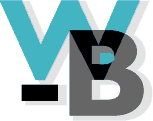

Writing Use Cases:
2 days
Ideal class size: Up to 20 students. Course can be customized to work on your use cases or add extra writer's workshop days. Price: Contact us at training@wirfs-brock dot com. Price includes all course materials and texts. Instructor travel and lodging are extra.
We still offer this popular course because not everyone writing requirements works on agile software projects nor wants to focus on usability and low-fidelity user prototypes. This class is intended for those wantings to sharpen their analytic and writing skills and become better at writing easy to read usage descriptions.Use cases describe how users interact with software. Together, with process descriptions and other requirements, they describe a software system from an external perspective. This 2 day hands-on course, authored by Rebecca Wirfs-Brock, inventor of the conversational use case form,teaches practical techniques for writing clear, concise usage descriptions, capturing non-usage requirements, and relating the two. Each student will have the opportunity to write and revise several use cases.
We begin the course by introducing three forms of use cases: narratives, scenarios, and conversations. Depending on the audience and level of detail that you wish to convey, you choose the appropriate forms. We show high-level descriptions with details of the dialogs between the users. We introduce you to a use case template that you can modify to fit your own particular needs.
As you develop usage descriptions, you resolve conflicts among requirements, outline business policies our system should support, and explain how our software will respond to alternative or exceptional conditions. This course gives you the opportunity to write and revise your words in labs and writing clinics, and to discuss several different solutions to each exercise.
The Best Way to Learn
People learn by doing. This course includes many cycles of hands-on work, followed by instructor-led clinics that reinforce your critical writing and reading skills. Each learning cycle, which lasts between half an hour and two hours, consists of:
First, a lecture and demonstration of new concepts and techniques
Then, a challenging team-oriented exercise
Finally, we discuss and critique solutions in a group clinic. Teams present their work for review and comment. This discussion reinforces good writing style and explores acceptable alternative solutions.
Short in-class readings provoke stimulating discussions on the nature of software description and the value of clarity and conciseness.
Who should attend?
Objectives
At the end of this course you will be able to effectively communicate complex, evolving software usage requirements. In addition, the course will enable you to:
Topics
Day 1: Developing an Initial Use Case Model
USE CASE MODELS & FORMS
Day 2: Developing Detailed Descriptions
SCENARIOS, CONVERSATIONS & OTHER REQUIREMENTS
ALTERNATIVES, VARIATIONS & EXCEPTIONS
Prerequisites
Students should be familiar with writing and reading software requirements and usage descriptions. Students should be comfortable writing and revising textual descriptions, and presenting their work to the class. Experience analyzing and describing software is a benefit.
Materials
Selected texts that provide guidance on writing use case narratives, scenarios, and conversations, diagramming use cases with the UML, and writing requirements. They round out your professional library with references vital to your on-the-job performance.
Writing Use Cases Course Guide by Wirfs-Brock Associates. 100 pages of our best practices for writing use cases.
For additional information, please contact us at training@wirfs-brock.com